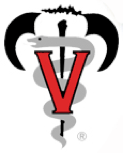The information below has been supplied by dairy marketers and other industry organizations. It has not been edited, verified or endorsed by Hoard’s Dairyman.

Veterinary students, young practitioners and even more “seasoned” veterinarians often have not been prepared for when things go wrong in practice such as a bad run of calvings, a surgery gone bad, a terrible situation with a client/coworker or other mistakes. “These are realities of practice,” says American Association of Bovine Practitioners (AABP) District 1 Director Dr. Liz Brock, North Berwick, Maine. “We don't typically talk about the times we fail as veterinarians. In addition, I personally have struggled with depression and anxiety in a big way, much of which is triggered by moments that don't go right.”
Brock says sometimes veterinarians can start thinking they are the only ones who struggle, but that's not the case. “Knowing you aren't alone in your feelings is an incredibly powerful way to detach yourself from them,” Brock explains. This gave Brock the impetus to start a series on the AABP Facebook page called “Humans of AABP”. The purpose is for veterinarians to share their stories with one another about the hard parts of practice. “In part so we can lift each other up, but mostly so the hidden masses know they aren't alone,” Brock adds.
The Humans of AABP series tells the true stories of AABP members during the messy parts of life in bovine practice. “This work is hard and it is okay to sometimes not be okay,” Brock says. “As an organization, AABP can help veterinarians by normalizing the personal challenges we face and provide a platform to support our colleagues through them. After all, we are all only human."
“Mental health and wellness is a concern for our AABP members,” adds AABP Executive Director Dr. Fred Gingrich. “It is likely that most of us have struggled at one point or another during our career. AABP wants to provide a platform where we can share these stories which we hope will ultimately help those who are currently in a crisis to realize they are not alone and AABP is here to support them. We also hope that if you are a colleague who is suffering, please reach out to someone. All of us can care about each of us!”
Veterinary students and AABP members of all stages in their career are invited to describe their struggles and how they addressed them, sought support or mentorship and became stronger through their journey. Would you like to share your story with your name or anonymously? Email either Dr. Liz Brock ehbrock27@gmail.com or Dr. Fred Gingrich (fred@aabp.org).
(anonymous)
When you read my Meyer’s Briggs personality profile, I’m the great protector. I do whatever I have to in order to be of service – “useful” – until I literally snap. And the snapping is of my own accord because I never stopped to ask for help.
It was a particularly rough spell at my practice – several doctors on medical leave, working massive amounts of overtime and extra on-call to cover. That particular weekend, I was on call alone (we typically shared weekend responsibilities, but everyone else was out of town). My first call of the day on Saturday was to a cut milk vein. She was down in a stall and I was rushing. In my haste to clamp the offending vessel, I slammed the top of my head into the metal cross bar of the stall. When I came to, I was across the alley in the manure with a massive headache, a wet butt and a still bleeding cow in front of me. So I did what we all do, I breathed through the tears that were forming and sewed her up. I even managed to chat with the farmer while running her a few bottles. Then I went to a calving and did an LDA surgery. I didn’t stop because I felt I couldn’t. I was the only one running the ship.
I persevered all the way to Thursday of the following week. I was rolling a cow for a toggle procedure when the stress and pain and bone-deep fatigue just hit me like a brick. This time I couldn’t stem back the tears. I finished the call and told the office I was going home for the rest of the day between sobs. About halfway home, I was in the throes of a full-blown panic attack, though I didn’t know it at the time. At the time, I thought I was having a stroke. I convinced myself that the concussion had caused a brain bleed and I was dying. I lost feeling in both my hands and I felt like I couldn’t find words. My office manager came and picked me up off the side of the road and brought me to the ER. No stroke. They treated me like a pest wasting a bed in their ER, gave me a cursory physical and some valium and told me I was fine. They never used the words panic attack. They never expressed sympathy. They never suggested I was in struggle.
As the drugs calmed my body, all that was left behind was humiliation. I learned two things that day: 1) Emergency rooms are not prepared to treat mental health, and 2) I couldn’t keep doing what I was doing. Since then, I’ve discovered a meditation app that’s helpful. I practice radical self-compassion when life gets hard (as it always does). I ask for help when I need it. It’s that same old cliché about the oxygen masks on the airplane. It’s not weak or selfish. It’s the only way to really be useful.





